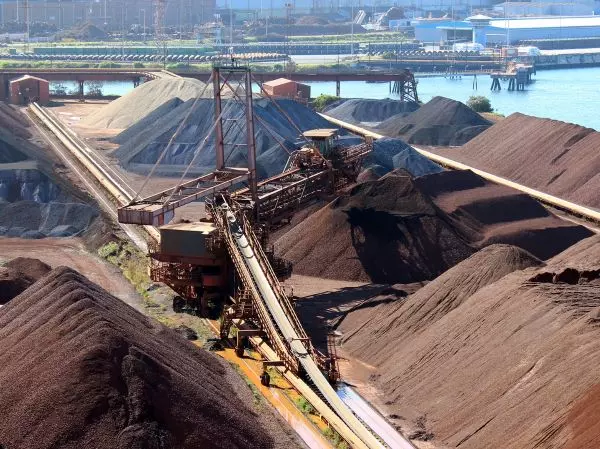-
In-pit crushing conveying & ore sorting
Loading and hauling by truck is unfortunately a large contributor to mining emissions. Trucks can be inefficient in terms of energy and fuel use – for instance, fully loaded conveyors use more than 80% of the received energy to transport the material, while mine trucks use more than 60% of the energy to move just themselves, including empty trips.
With mining companies seeking to cut emissions due social pressure and regulatory risk, there is a growing trend to implement environmentally sustainable handling systems and equipment. In-pit crushing and conveying (IPCC) systems is a solution.
IPCC can reduce GHG emissions by more than 100,000 tonnes of CO2 per year (Norgate & Haque (2010), Energy and greenhouse gas impacts of mining and mineral processing operations. Referring to Carajas mine). IPCC technology allows for reducing truck haulage in mines by moving the primary crusher from the processing plant closer to the mine for the crushing and conveying of run-of-mine (ROM) material.
The operational efficiency can even be increased by entertaining relocatable or semi-mobile crushing stations, which can follow the mine progress keeping the truck transportation at the minimum possible level. Moreover, with a favourable mine layout, it is possible to create an operation completely without mine trucks by using fully mobile crushing stations on crawler tracks that operate directly with the shovel at the mine face.
The advantages are many: mines can reduce OPEX through less manpower, minimised maintenance and reduced fossil fuel costs. ROI (return on investment) often arrives in under three years.
Another key area in this stage of the process is in-pit bulk ore sorting systems, which can increase concentrator efficiency and optimise downstream processes. Simply put, low grades result in higher and water electricity consumption.
A typical gold mine operation consumes 25-150kWh of electricity per tonne of processed ore (Calvo, Mudd, Valero and Valero, 2016). This means that if mill feed tonnes can be cut via bulk ore sorting ahead of the processing phases, a mine can significantly decrease energy, water and reagent consumption – as well as tailings.
Approximately 36 per cent of a mine’s energy is used by comminution (Ballantyne, Powell, & Tiang, 2012), so pre-process ore sorting can make a huge dent in slashing energy use and therefore costs and CO2 emissions.

The digital boosters
Smart digital solutions use data intelligence..

BulkExpert™

The key flowsheet processes
Take a deeper dive into the main process areas of the flowsheet. Discover more about the technologies by clicking the icons below:






